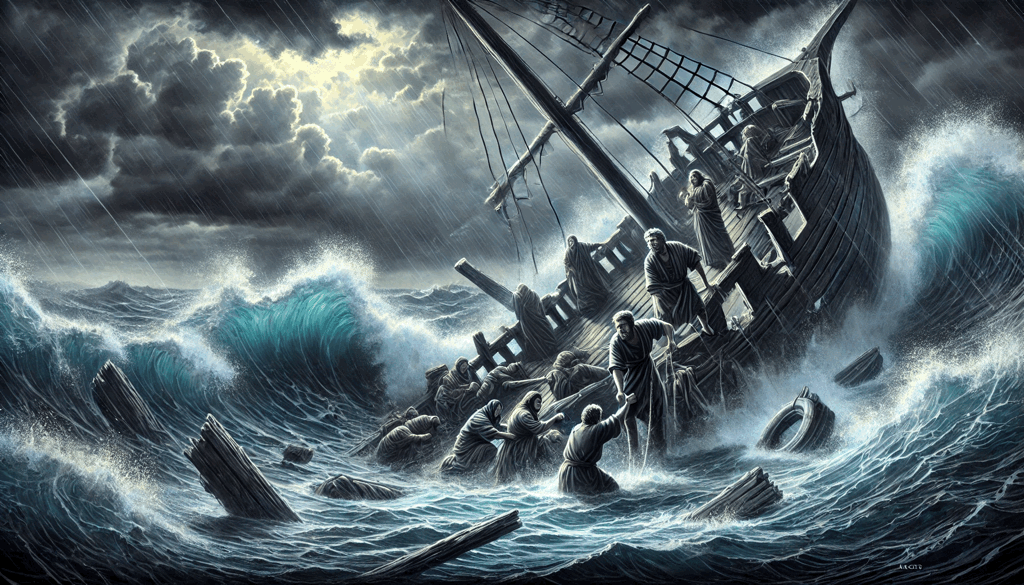The story of Paul’s shipwreck in Acts 27 is a gripping narrative of survival, faith, and leadership under extreme pressure. As Paul journeys to Rome as a prisoner, the ship he is aboard faces a violent storm that threatens the lives of all 276 people on board. Despite the dire circumstances, Paul’s unwavering faith and calm leadership not only help save lives but also offer timeless lessons on handling crises.
The journey begins with Paul, along with other prisoners, being handed over to a Roman centurion named Julius. Julius treats Paul kindly, even allowing him to visit friends at one of the stops. However, as they continue their voyage toward Italy, trouble looms on the horizon. The Mediterranean Sea, particularly during the autumn months, is notorious for its treacherous waters, and Paul, experienced from his travels, warns that the voyage could end in disaster.
Despite Paul’s warnings, Julius chooses to listen to the ship’s pilot and owner, who have a vested interest in completing the journey quickly. This decision proves catastrophic when a fierce Nor’easter, a type of violent windstorm, strikes the ship. The crew is quickly overwhelmed, and in desperation, they begin throwing cargo overboard to lighten the load. Days pass without any sight of the sun or stars, leaving the sailors hopeless and uncertain of their location.
Amidst the chaos, Paul steps up as a leader, despite being a prisoner. He shares a message of hope, recounting how an angel of God appeared to him, assuring him that while the ship would be lost, no lives would be. This divine message gives Paul the confidence to encourage the others. He tells the crew that they will survive if they stay on the ship and trust in God’s plan.
Paul’s leadership doesn’t end with words of encouragement. After 14 days without food, he urges the crew to eat to regain their strength. In a situation where despair could easily have taken over, Paul’s practical and spiritual guidance proves invaluable. His calm demeanor and steadfast faith in God’s promises serve as an anchor for the entire ship, giving the passengers and crew hope in an otherwise hopeless situation.
As the ship nears land, the sailors, fearing for their lives, attempt to flee by lowering the lifeboats. But Paul warns the centurion that everyone must stay on board to survive. Trusting Paul’s judgment, the soldiers cut the ropes to the lifeboats, ensuring that no one would abandon the ship. In the end, just as Paul had predicted, the ship runs aground, but all 276 people survive the ordeal, reaching the shore safely.
The story of Paul’s shipwreck teaches us several important lessons. First, it highlights the power of faith during life’s storms. Even in the face of overwhelming danger, Paul’s trust in God never wavers. Second, it shows the value of leadership in a crisis. Although Paul was technically a prisoner, he led by example, encouraging others and offering practical advice that saved lives.
Finally, this story reminds us that even when situations seem hopeless, faith and perseverance can carry us through. Paul’s steadfast belief that God had a plan for him – to stand trial before Caesar – gave him the strength to lead others through the storm. In our own lives, we can draw on these lessons, trusting that even in the most challenging moments, there is always hope if we keep our faith.

